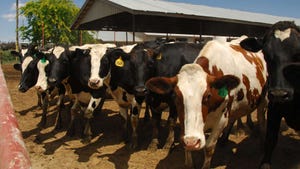High-flying pork prices come back down to earth
Rabobank outlines challenges ahead for the global pork industry
April 17, 2015

According to the latest Rabobank Pork Quarterly report, the global pork industry has been searching for stability during Q1 2015, with strong supply growth and relatively weak demand driving the market.
The report said pork prices are sharply lower as robust global supply growth, driven by the U.S., Russia, and Brazil, has outpaced rather subdued demand, dragging producer profitability into negative territory. After favorable profit margins in 2014 due to PEDV losses reducing supply, hog inventory has since rebounded and global pork prices have fallen close to 40% from the historic highs of last summer, the report noted.
"The increasing competition in the global export market will result in continuous price and margin pressure in most countries around the globe,” Rabobank animal protein analyst Albert Vernooij said. “Therefore, after the buoyant—at least price-wise—last couple of years, the global pork industry is slowly moving towards the bottom of the cycle."
Outlook for global, regional markets
As U.S. supply recovers after PEDV, Rabobank said the question is to what degree recovery will be coupled with the strengthening U.S. dollar and lower prices. “This will be crucial to the expected export recovery after the disappointing start to 2015,” the report noted.
In the EU, the report suggested that prices will follow seasonal developments, but will remain lower than the historical average and below break-even level. The report said prospects for the EU remain meager, with higher production and lackluster demand limiting seasonal improvement of pork prices to, at best, the seasonal average.
With the industry slowly improving, prices bottomed out in China during March. The report said the main question is whether the large herd contraction of the last 18 months will return producer margins to profitability and spur increased imports.
In Brazil, prospects remain positive, but less buoyant than in Q1, driven by pressured domestic consumption and difficult Russian export negotiations, according to the report. Rabobank said it continues to believe that Brazilian pork exports will increase during 2015. However, after a weak start, the bank said the pace of growth might not be sufficient to surpass 10%, as previously predicted.
You May Also Like

.png?width=300&auto=webp&quality=80&disable=upscale)

